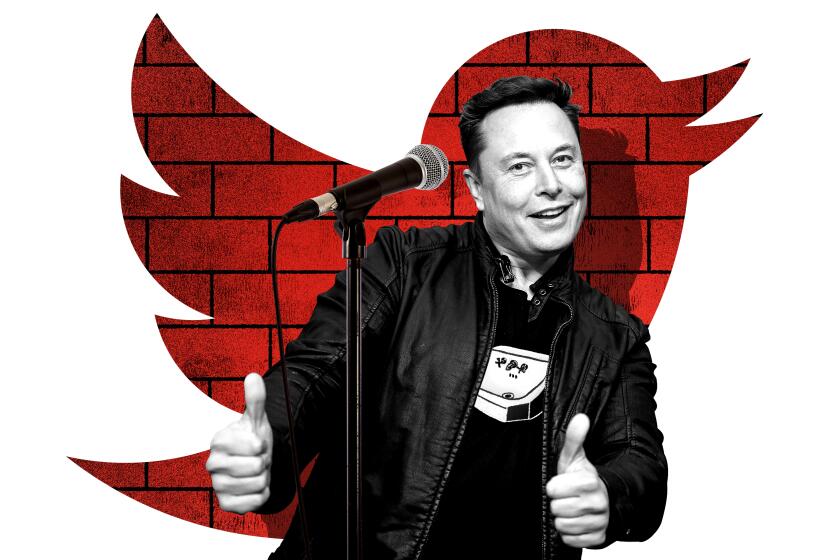Twitter settles retaliation claim over return-to-office protest

- Share via
Twitter has settled with a former employee who U.S. labor board prosecutors concluded was illegally punished for protesting its return-to-office mandate.
Software engineer Alexis Camacho claimed the company put them on administrative leave in retaliation for posting a message urging co-workers to take collective action against the company’s return-to-office policy.
A regional director of the National Labor Relations Board found merit in the allegation, and the NLRB informed Twitter that it would issue a complaint unless the company settled the case, according to agency spokesperson Kayla Blado. Twitter and Camacho then reached a settlement, the terms of which weren’t disclosed.
Twitter’s attorney didn’t immediately respond to an inquiry about the case, and the company didn’t specifically respond to a request for comment.
‘Like an alien’s version of comedy.’ ‘The sense of humor of a horny dentist.’ Nikki Glaser, Hari Kondabolu and other comedians on Elon Musk’s desperate quest to be funny.
Elon Musk, who took control of Twitter in October, told employees in November that they would immediately be expected to spend at least 40 hours per week in the office, ending Twitter’s permanent work-from-anywhere option. He also quickly dismissed about half of the company’s workforce and most of its executive suite.
Camacho’s attorney, Shannon Liss-Riordan, said in a text message that she was “very pleased” to have reached “a fair resolution” in the case. “We look forward to vindicating the rights of our remaining clients through litigation, arbitration, and wherever else we can,” said Liss-Riordan, who represents more than 1,900 former Twitter employees who’ve brought claims against the company since Musk’s takeover. “The formerly richest man in the world is not above the law.”
Federal law protects the right of workers to discuss and take collective action about working conditions, with or without a union. The NLRB, which enforces that law, has the power to order changes to policies and back pay for employees, but not to hold executives personally liable or make companies pay punitive damages.
Musk’s companies have repeatedly clashed with the NLRB. The U.S. 5th Circuit Court of Appeals in March upheld an NLRB ruling that Tesla illegally fired an employee at the electric-car maker’s California auto factory because of his union activism, and that a tweet from Musk constituted an unlawful threat. An agency judge ruled in April that Tesla violated the law by telling workers in Florida not to discuss their pay. In New York, a regional NLRB office is investigating a union’s claim that Tesla was illegally retaliating when it terminated dozens of employees the day after the announcement of an organizing campaign at the company’s Buffalo plant. Tesla has denied wrongdoing in each case.







